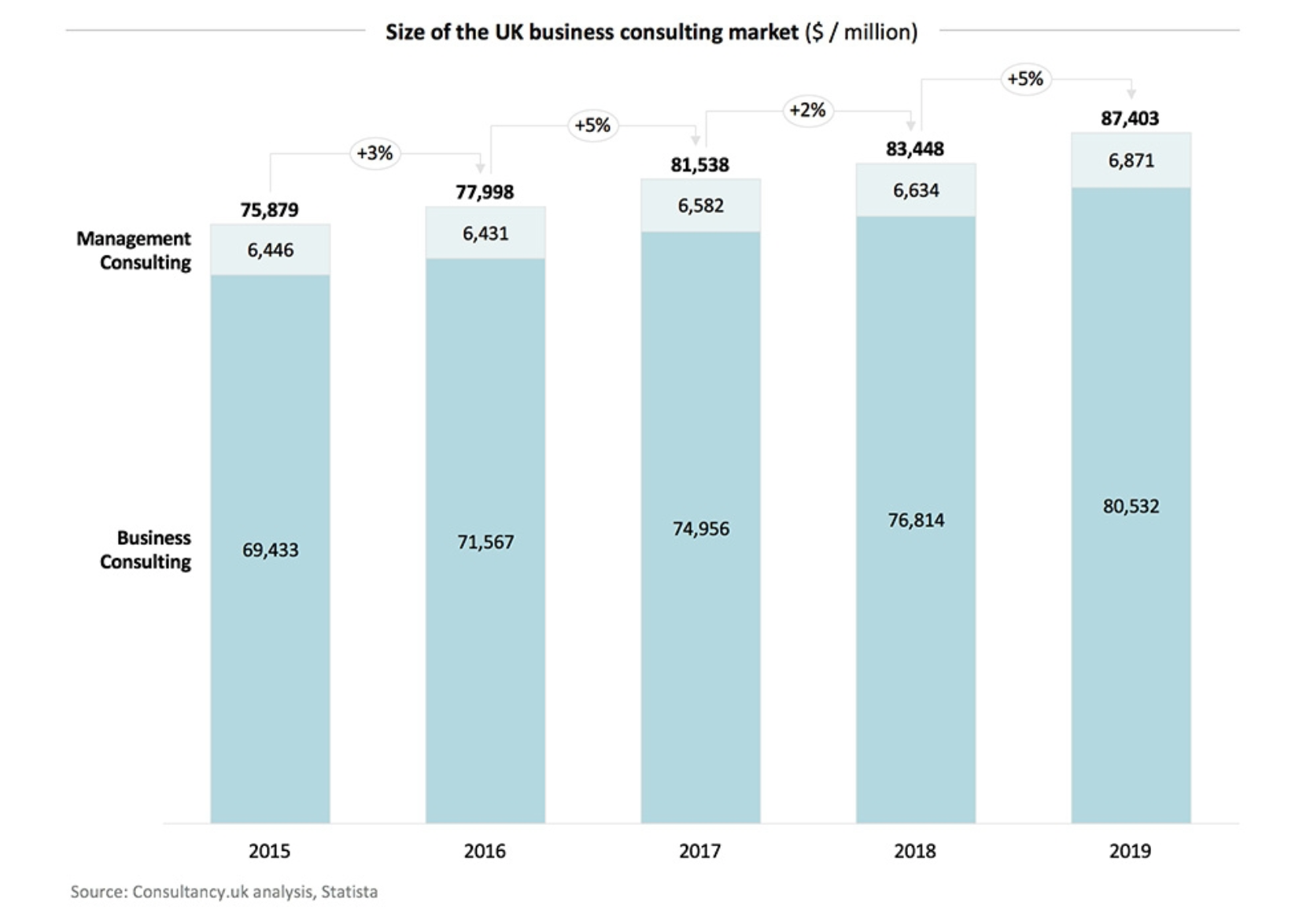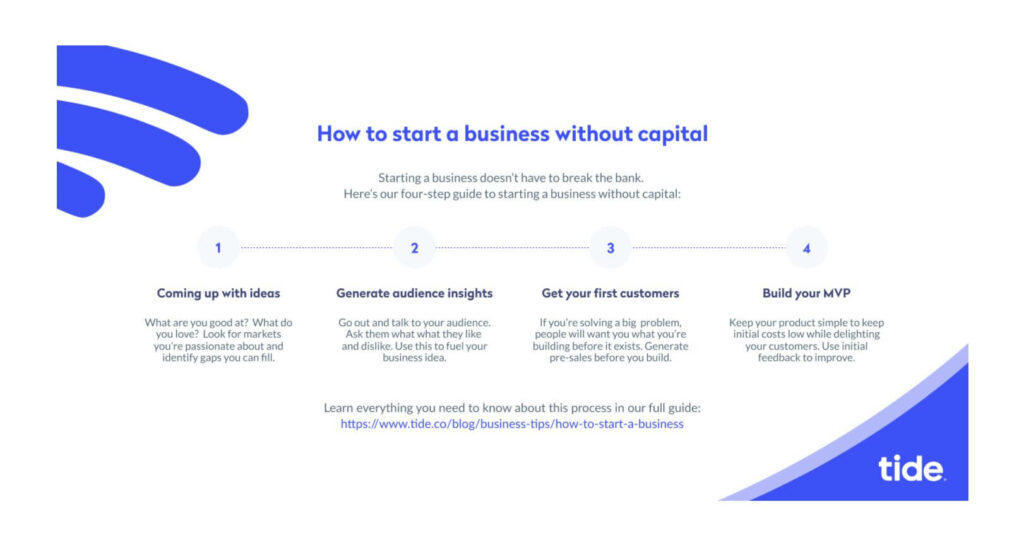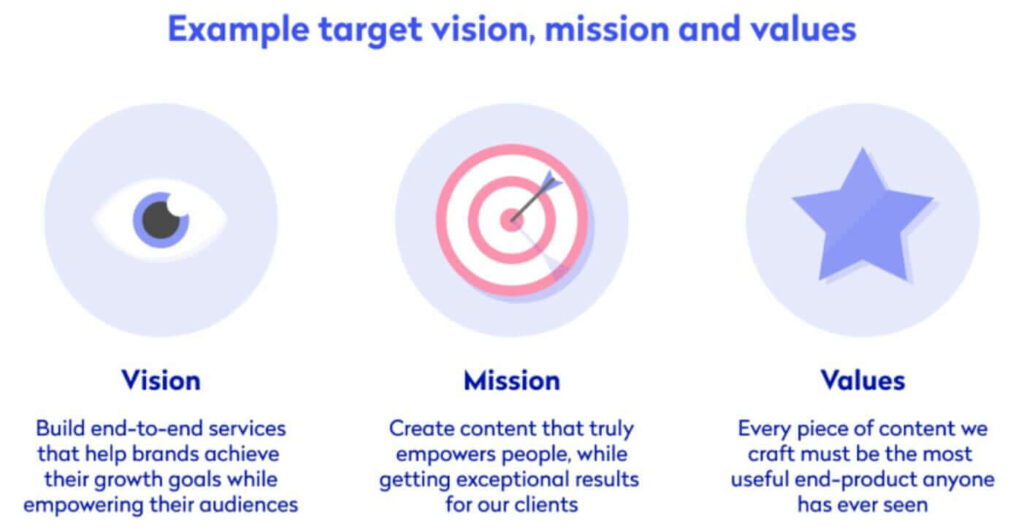Consultants are a coveted asset. Businesses rely on their expertise and passion to help them map and achieve their goals.
The demand for consulting services is on the rise. In the UK, the consulting marketplace is valued at approximately £81 billion and has steadily grown in recent years between 6%-10% year over year, according to research carried out by Statista.
Starting a consulting business allows you to leverage your professional expertise and skills to help other businesses thrive—be it online, in-person (COVID-19 restrictions pending), in your own country or on a global scale.
In this article, we’ll dive into what exactly a consultant is, how they help businesses, explore six types of consulting business models and discuss what you should consider before starting your own consulting business.
What is a consultant and how do they help businesses?
A consultant is someone that has developed specialised skills in a specific area and uses that knowledge and expertise to temporarily help other businesses.
For example, a consultant may have previously worked as a senior accountant at a company and has chosen to use those skills to consult other businesses regarding accountancy. Or, a consultant may be somebody who has raised money for various types of businesses over the course of their career and has chosen to use that specific expertise to consult with other businesses on best practices to raise money.
Consultants come in many forms, (as we will discuss in detail in a later section). They can be certified public accountants (CPAs), attorneys, marketers, sales leaders, coaches, a full-fledged consulting agency that caters to many areas of business, and more.
Beyond simply advising businesses on best-practices, consultants often help in a myriad of other ways. For example, consultants may help businesses by:
Identifying problems and providing an objective opinion, free of company politics or emotion
Offering expert advice for helpful solutions
Acting as supplemental staff for a period of time by contributing their specialised skills
Being a much-needed catalyst for change by providing extra horsepower
Reenergising the business in a variety of ways, such as helping them grow rather than maintaining the status quo
Teaching and training employees
Helping to build a new business from scratch
From a business perspective, hiring a consultant is a great way to acquire expertise that helps to increase revenue while keeping expenses low. While consultants certainly can and should charge a premium for their expert insights, it’s often cheaper to hire a consultant over a full-time employee. That’s because hiring a consultant allows businesses to pay for the expertise they need at that moment in time and not a moment more.
If it turns out that the business realises that they need the expertise a consultant brings on a more permanent basis, that’s when they’ll most likely seek to fill a full-time position for that role. That role may be an in-house consultant or a full-time position, such as a senior CPA.
Benefits of starting a consulting business
Starting a consulting business isn’t only beneficial for your clients, but it can also jumpstart your entrepreneurial career and help you grow professionally.
Here are a few of the top benefits of starting your own consulting business:
Low overhead: Because you’re selling your expertise rather than a product or service, it’s relatively inexpensive to start your own consulting business. You can run it remotely from your home and your biggest expense will be getting your business online, which isn’t very costly. Another expense to consider is a certification (which we will discuss later on), which is also inexpensive and often not required.
Flexibility: Like any other business owner, working for yourself gives you an incredible amount of flexibility. You get to make your own schedule, choose your own rules, pick the types of clients you want to work with, choose how much to pay yourself vs. putting back into the business, and so on. Your time and work/life balance is truly yours and you get to decide how you want to use and structure it.
Opportunity for professional development: Great consultants are constantly watching webinars, attending seminars and conferences and reading up on the latest trends and reports to stay up to date in their field. Because of this, you’re going to learn a lot and consistently level up your skillset. And as a side benefit, you’ll always be growing your professional network because of the events you attend. The knowledge sharing from your network will help to further develop your skills and mindset.
Put your expertise to work for yourself rather than others: Consultants are highly skilled and experienced workers. They are often linchpins in their organisation and provide long-lasting value. Many people are happy putting their skills to use as employees, but if you love the idea of answering to yourself, being your own boss and reaping all of the benefits of your hard work, then starting your own business may be for you. Because starting a consulting business has such low overhead, it’s very easy to start your business on a budget with no money or capital.
Get to help people: Ultimately, consultants get to help others. Their knowledge, experience and expertise are highly valued, and work that is both helpful and highly valued is often the most rewarding kind. You get to temporarily enter a workspace that’s in need of help and single-handedly improve it—whether through actual material work or through teaching invaluable insights to others.
Of course, every business has its downsides. The pressure of being the go-to person that wears all of the hats and makes difficult decisions that could harm a company if poorly executed can be overwhelming. And in general, all business owners deal with the added stress of effectively managing their own time, taxes, benefits, hiring staff and making enough money to stay afloat in their first few years and beyond.
That said if you’ve got the urge to work for yourself and a strong desire to help others, the benefits of starting your own consulting business far outweigh the drawbacks.
What qualities make up a good consultant?
Consultants can be an invaluable addition to an organisation. They can help develop strategies for growth, offer priceless insights to help streamline existing processes, provide objective opinions on how to scale efficiently, help to brainstorm out of the box solutions to drive more revenue, and much more.
So, what qualities do you need to have in order to get your business off the ground and help your clients reach and surpass their goals? Here are a few key benchmarks.
Good networking skills: Great consultants know how to build important relationships. You’ll rely on these relationships to help you get your consulting business off the ground, gain an advantage over your competitors, boost your brand’s reputation and increase your chances of landing new clients. Plus, you’ll be able to learn from these relationships and perhaps even find a mentor to provide expert guidance on how to build a successful consulting business.
Passion: The best consultants are passionate about what they do. If you enjoy the work you’re tasked with and are passionate about helping others reach their goals, you’ll produce better work for your client’s and be more fulfilled with the outcome. Plus, if you’re passionate you’re also often more resourceful, committed and tenacious especially if you hit a speedbump in the road. Your clients will want to know that you care enough to see a project through even if it’s particularly challenging.
Drive for excellence: Passion will serve to supplement your drive for excellence. A great business consultant will care deeply about getting the job done well. They will go above and beyond expectations to produce measurable results. If you care about building excellent systems that are better than anything else out there, then you’ll be ahead of the curve.
Attention to detail: Business consultants must have keen attention to detail. You’ll be responsible for reviewing processes and systems to find potential flaws and areas of opportunity. To achieve this, you’ll need to be able to catch inconsistencies quickly. Moreover, you’ll be expected to create error-free deliverables consistently without oversight. Great consultants make few errors, and this helps to build trust and loyalty with your clients.
Ability to multitask: As a consultant, you’ll have to wear many hats at once. From reviewing policy and processes to creating PowerPoint presentations to interviewing staff to leading meetings and so on. You must have an innate ability to juggle all of these responsibilities at once without feeling overwhelmed. Rather, you’ll be able to easily switch between tasks while still producing impressive results.
While having these high-quality traits will help you be a great consultant in general, without a good business model, you may struggle to get your business off the ground. Let’s explore several types of consulting business models and how to launch them the right way.
6 types of consulting business models
There are dozens of successful consulting business models, but we’ve chosen six of the most popular types to explore in detail.
Let’s dive in.
1. Finance
Financial consultants help businesses manage and grow their wealth. You will be responsible for improving financial strategies, creating more efficient procedures and ultimately maximising revenue.
Clients will look to you for expertise and guidance on forecasting, investment opportunities, financial planning best practices, portfolio review, providing crucial insights on the best avenue towards growth, tax preparation, risk management, business acquisitions, and so on.
To be a successful financial consultant, you must be first and foremost be trustworthy. Something that will help you gain that trust is obtaining the Certified Financial Planner (CFP) certification, which is recognised globally as the gold standard for financial planning professionals.
This certification will immediately help to garner trust and confidence amongst your clients. It will also help to reduce your compliance risk, something crucial for a business owner that is helping others manage their money. Further, it will prove that you’ve been tested and thus meet rigorous international competency, ethical and professional practice standards.
That said, this certification is not required. If you have plenty of on the job experience and testimonials to vouch for your expertise, you can leverage your network to land your first client.
It’s best to choose a financial niche where you can truly deliver unique value. Not every financial consultant is expected to be a wizard at both financial forecasting and business acquisition. The former is better suited for accountants and the latter is catered towards investors. Hone in on your biggest strengths and proceed from there.
2. Branding
A branding consultant helps businesses by helping to conceptualise a brand. This involves creating consistent brand messaging, building brand guidelines, choosing colour pallets, creating voice and tone guidelines and much more.
Building a brand that customers love is tricky, but done right, can significantly increase revenue and reach. That’s what clients rely on branding consultants for—to get the brand right the first time around.
Branding consultants must be constantly on the ball when it comes to industry updates. As digital branding trends often change each year, it’s key that you are up to date with the latest best-practices.
At the same time, the market is flooded with experienced branders offering up their expertise for a price. A great way to attract your first clients is to build a comprehensive portfolio that showcases how you’ve contributed to projects that have driven amazing results. Webinars, videos and a stand-out website are all great ways to showcase your work and talents and personalise your own brand.
3. Marketing
Marketing consultants help their clients develop strategies to better reach their target audience and drive them to convert into customers.
This involves:
Uncovering missed opportunities for driving potential customers to their value proposition;
Providing guidance on how to produce valuable SEO driven content;
Creating efficient marketing budgets;
Crafting realistic timelines;
Building comprehensive marketing strategies and materials,
Generating effective publishing strategies and timelines,
Building relationships with influencers and thought-leaders, and;
Ultimately improving revenue through marketing initiatives.
Marketing is an art form that requires deep knowledge of how to make a brand stand out from the competition. Marketing consultants are responsible for the business’s public persona and perception, which requires a keen eye for understanding what drives consumer loyalty and retention.
Similar to branding, the best way to show off your marketing expertise is by proving that what you’ve done for other brands can be replicated for your potential clients. Create a captivating website and add tons of testimonials, case studies and stats. If you can write, build a blog and produce 10x content that dives into the expert insights that you offer. If you can prove that you are an industry expert and leader, you’ll gain enough social proof to generate a buzz.
4. Business management
Management consultants help businesses navigate their growth. As businesses grow, they often face hurdles when it comes to introducing new technologies and processes, expanding staff, coaching managers, obtaining operational efficiency and updating internal processes.
It’s all too easy for businesses to grow too fast and get ahead of themselves, thus overpromising and under-delivering. Management consultants provide critical insight on how to grow efficiently and effectively without compromising value, culture, and target audience expectations.
As a business management consultant, you’ll evaluate the larger business strategy and compare that to the way the business is currently operating. Do they align? If not, what can you do to optimise it and set it on a smoother course? From leadership tactics to internal processes, you will enhance business operations that will ultimately help the business succeed.
Business management consultants can level up their brand by obtaining a Certified Management Consultant (CMC) certification. This international consultancy award will help you to provide evidence of your ability to provide added-value solutions, experience in delivering impartial interventions and a highly coveted endorsement that you meet the preferred standards.
5. Business strategy
Business strategy consulting is similar to business management, but with a focus on helping established businesses stay aligned with their original mission and goals, or helping growing businesses gain traction.
While business management is all about enhancing internal operations and leadership, business strategy takes a more macro approach and helps to write or update business plans, bring the right people on board, create new or enhanced products and advise on the latest target market trends and competition.
A business strategy consultant will help a business stand out from the competition in terms of large-scale business choices, such as products, pricing, staff, board members and more. All the while ensuring that the actions the business takes align with their original vision, mission and values.
If you find that the business has strayed from their initial foundational values, you can either steer them back towards them or help them generate updated values. Either way, the way that the business is operating and the work they are producing must align with these foundational pillars.
6. Human resources
A human resource consultant will help growing companies that are navigating a transition. This transition may range from going through an acquisition, hiring rapidly to meet demand, bringing on new leadership, restructuring teams, needing to fire several employees and building out employee documentation.
A human resources consultant will be able to provide guidance and assistance regarding employee benefits, retirement funds, company culture, onboarding procedures, internal messaging best practices and requirement gathering.
Often, these companies don’t have the support or guidance they need in order to implement new procedures and policies, such as an employee benefits package or crafting a new employee handbook. Larger companies may enlist an HR consultant to gain an outside perspective on a difficult challenge without getting wrapped up in internal organisational politics or bias.
HR consultants also play a key role in creating or enhancing positive company culture. Employee well-being is not a given, and HR consultants are experts in people-problem prevention programs, such as teaching employees how to get along with each other or providing violence and/or sexual assault/harassment training in the workplace.
Businesses usually look for their HR consultant to have a degree in Human Resources and Organisational Leadership or several years of HR experience in lieu of, or in addition to, a specialised degree.
Top Tip: No matter what business model you choose, you’ll need to choose a legal business structure (Sole trader, Limited Liability Company (LTD), Partnership or Limited Liability Partnership (LLP)). To learn more about each structure in-depth, read our guide on how to register a business in the UK. If you choose the limited company type, you can register your business for £14.99 and get a free business bank account when you register your company with Tide.








